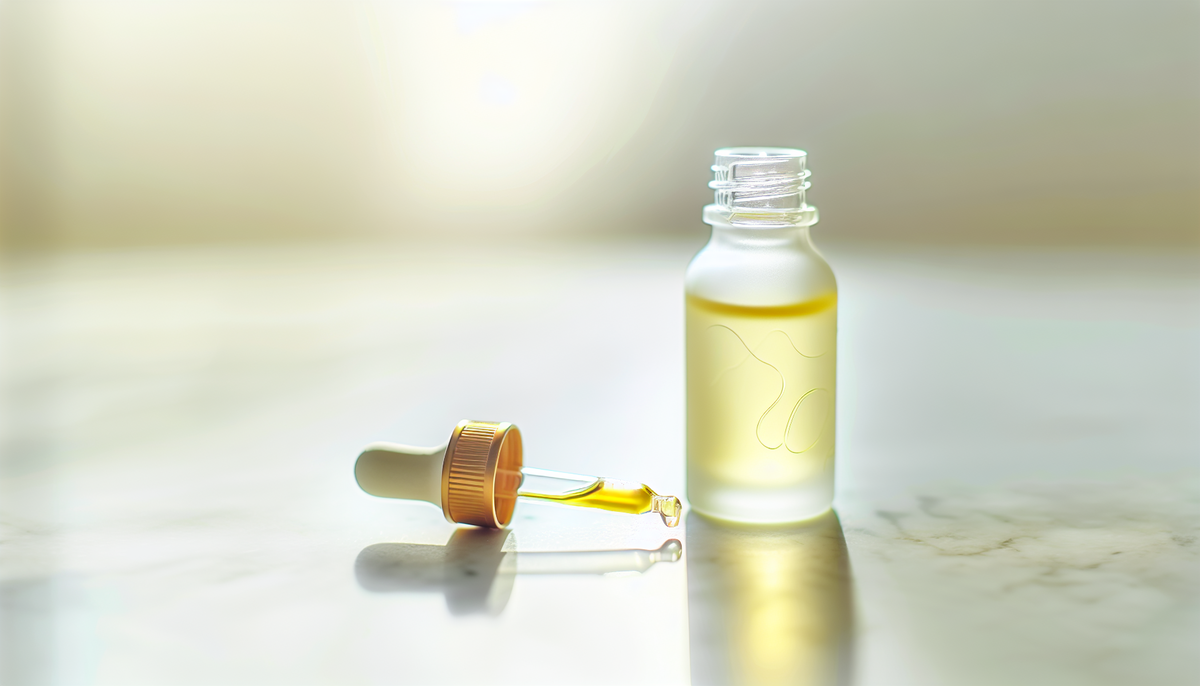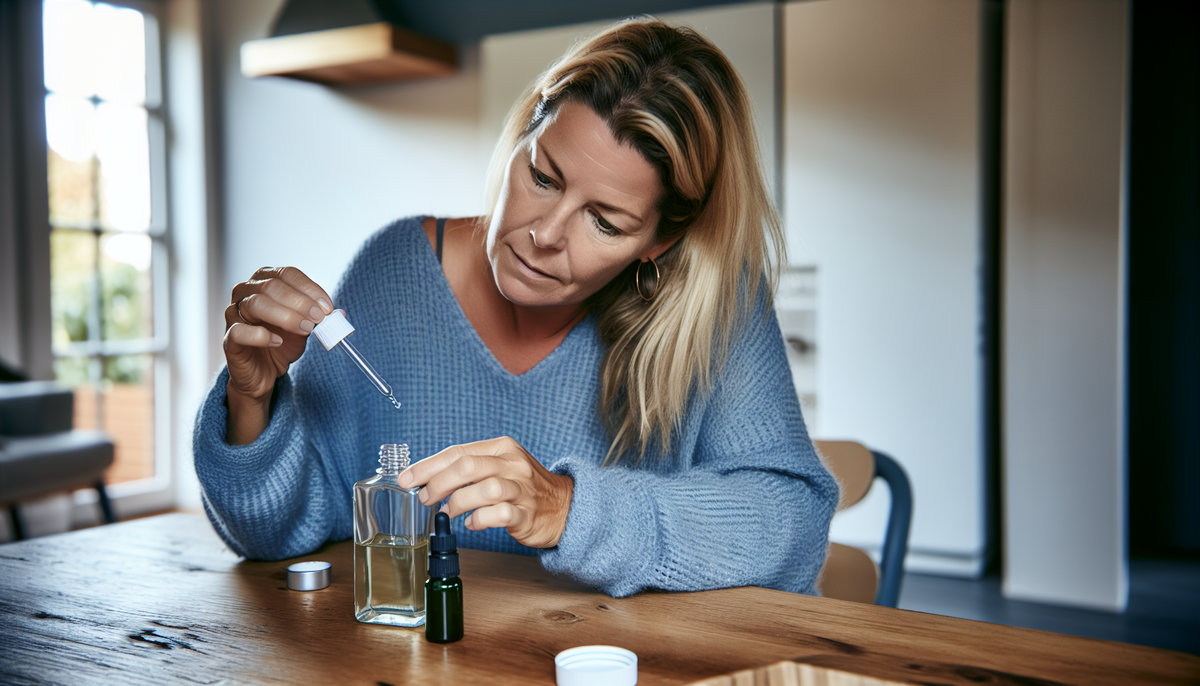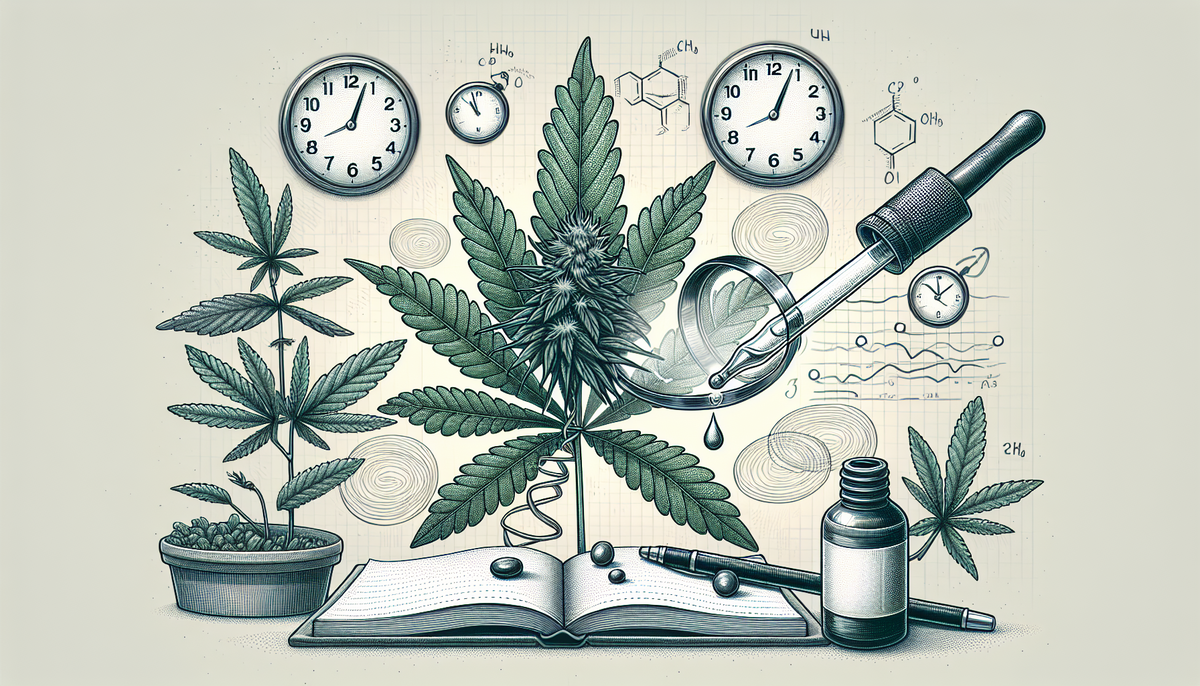How Often Can I Take CBD Oil Safely?
Written by: Daniel Fayad, Subject Matter Expert and Website President
Published: March 15, 2024; Last updated: April 6, 2024
- 1. Key Takeaways
- 2. Understanding CBD Oil Frequency
- 3. Tailoring CBD Oil Dosage for Your Needs
- 4. How to Determine the Right Schedule
- 4.1 Starting Dosage
- 4.2 Adjusting Frequency
- 4.3 Monitoring Effects
- 5. Potential Side Effects and Interactions
- 6. The Role of Healthcare Professionals
- 7. Legal Considerations and Quality Control
- 8. Summary
- 9. Frequently Asked Questions
- 9.1 How often is it OK to take CBD?
- 9.2 How long does CBD oil take to kick in?
- 9.3 How often can you take trip CBD oil?
- 9.4 How much time does CBD oil last?
- 9.5 What factors affect the optimal frequency of CBD oil usage?
- 10. References
How often can I take CBD oil? It’s a pressing concern for anyone considering the therapeutic use of CBD oil. The answer isn’t one-size-fits-all, nor is it about mere guesswork. This article simplifies the factors determining safe usage intervals and clarifies how to fine-tune your CBD intake. We’ll guide you through personal considerations, product forms, and the vital role of consistency so you can use CBD oil with confidence and understanding.
Key Takeaways
CBD dosage and frequency should be personalized based on individual body chemistry, the endocannabinoid system, targeted health conditions, and the mode of administration.
There are various methods to take CBD, including tinctures, capsules, edibles, topicals, and vaping, each with distinct advantages, onset times, and suitability for different needs.
Consultation with healthcare professionals is crucial for determining safe and effective CBD dosage and frequency, monitoring side effects and interactions, and adhering to legal and quality control standards for CBD products.
Understanding CBD Oil Frequency

We all know that CBD offers numerous health benefits. Have you ever considered that the dosage and frequency of CBD oil intake can vary depending on several factors? Think of it as a puzzle where pieces like:
body chemistry
your endocannabinoid system
targeted health conditions
the mode of CBD administration
Come together to form the perfect picture of your CBD routine.
For example, aspects of your body’s chemistry, such as metabolic rate and genetic polymorphisms, influence how your body processes CBD, affecting the dosage and frequency of intake. Likewise, the unique characteristics of your endocannabinoid system, which interacts with CBD receptors like CB1 and CB2, define the best frequency for CBD oil use. ²
Moreover, your targeted health conditions, such as epilepsy or anxiety, can significantly affect the suitable dosage and usage frequency of CBD to treat seizures.
Tailoring CBD Oil Dosage for Your Needs

After selecting your CBD product of choice, the subsequent step is to adjust the CBD dosage to align with your needs. Factors like body weight, individual responses, and the specific condition being treated play significant roles in determining your ideal CBD dosage. For instance, guidelines often recommend a calculated CBD dose per kilogram of body weight, with an average starting dose for various conditions typically between 20 and 50 milligrams per day. So, how much CBD should you take? It’s essential to consider these factors and consult with a healthcare professional to find the proper dosage for you.
Different forms of CBD products also have varying methods for determining the dosage. For example, if you’re using CBD oil, you may need to calculate the CBD content per dropper based on the bottle’s total CBD content. One common question is how much CBD oil should be taken. Remember that factors such as the severity of your symptoms, your body’s chemistry, and tolerance level substantially influence the optimal CBD dosage.
Several days are typically needed for your body to adjust to the intake of external cannabinoids.
How to Determine the Right Schedule

Establishing an appropriate CBD regimen is a process that demands patience and meticulousness. The key is to start with a small initial dosage, then gradually increase it while paying close attention to your body’s responses. Keeping a sleep log can be particularly helpful for those using CBD to address sleep issues.
This way, you can track your sleep quality alongside CBD usage, helping you find the optimal dosage.
Starting Dosage
Adopting a minimalistic approach is beneficial in the initial stages of your CBD journey. Starting small lets your body adjust to the new substance, reducing the risk of adverse side effects. A starting dosage can be as small as half a gummy or a drop of oil. As you gain more experience and confidence with CBD oil, you can gradually increase your dosage to suit your needs.
Each CBD product type comes with its own starting dosage recommendations. For instance, when using CBD oil or tinctures, you can calculate the milliliters per drop to determine your starting dosage. If you’re starting with CBD capsules, it’s suggested to begin with a lower dose as indicated on the product packaging. And remember, patience is vital. Give your body time to adjust and monitor your responses closely before increasing your dosage.
Adjusting Frequency
As you familiarize yourself with the impacts of CBD on your body, you may need to modify the frequency of your CBD consumption. For vaping CBD, it’s recommended to begin with minimal inhalations and assess its effects. This approach allows you to gauge your body’s response to CBD without overwhelming your system.
As you build up a tolerance, you can gradually increase the number of inhalations based on personal tolerance and desired outcomes. Remember, everyone’s CBD journey is unique. It’s all about listening to your body and adjusting as necessary for optimal results.
Monitoring Effects
Keeping a close eye on your body’s reactions is vital to your CBD journey. As you start and adjust your CBD regimen, be attentive to how your body reacts. Noting short-term side effects like drowsiness, dry mouth, or digestive issues can indicate whether the dosage or frequency needs adjustment. This awareness can help you fine-tune your CBD routine for maximum benefits and minimal side effects.
Long-term monitoring is also essential, allowing you to identify serious adverse effects, such as potential impacts on liver function. Observing your body’s responses over time ensures that CBD oil is used safely and effectively. Remember, the goal is to find a balance where you achieve your desired effects without adverse reactions.
Potential Side Effects and Interactions
Despite the numerous health benefits of CBD, it’s crucial to stay informed about possible side effects and interactions with other drugs. Some common side effects include dry mouth, low blood pressure, light-headedness, and drowsiness. Excessive intake of CBD can also lead to nausea, diarrhea, reduced appetite, and fatigue.
Moreover, CBD can interact with a range of medications, potentially causing severe problems. For example, CBD may alter the effects and side effects of drugs that are changed and broken down by the liver. When combined with sedative medications or alcohol, CBD can also increase sedation effects. Therefore, it’s crucial to consult with a healthcare professional if you’re taking other medications.
The Role of Healthcare Professionals

Due to possible side effects and interactions, it’s essential to seek advice from a healthcare professional to establish the correct dosage and frequency for CBD use. Healthcare professionals can provide critical insights into the complex nature of CBD dosing, potential efficacy, medication safety, and precautions, assisting you to avoid adverse reactions, especially when other medications are involved.
In addition, healthcare professionals are essential in the ongoing monitoring and adjustment of CBD oil use. They can respond to your health changes and ensure tailored treatment. A trusting relationship between healthcare providers and patients, coupled with professionals’ up-to-date knowledge of cannabinoids, fosters the provision of accurate advice on safe treatment with CBD.
Legal Considerations and Quality Control
Understanding the legal framework surrounding CBD can be complex. Here are some key points to keep in mind:
At the federal level, CBD derived from hemp with less than 0.3% THC is legal.
CBD derived from the cannabis plant is considered illegal.
However, states can impose regulations, resulting in a complex legal landscape.
It’s essential to be aware of the laws in your area before purchasing hemp-derived CBD products.
Furthermore, the importance of selecting high-quality, approved, nonprescription CBD products for safety, efficacy, and precise dosing cannot be overstated. Most CBD products are not regulated by the FDA, leading to potential inconsistencies and impacting the reliability of dosage calculations. Therefore, choosing high-quality products from reputable brands that adhere to industry best practices and offer clear ingredient listings is crucial.
Summary
In conclusion, finding your ideal frequency of CBD oil usage entails understanding various factors, from body chemistry to the mode of CBD administration. It’s about exploring different CBD product forms and tailoring your CBD dosage to your needs. It involves determining the proper CBD schedule, starting small, and adjusting as necessary while monitoring your body’s responses. Remember to be aware of potential side effects and interactions, consult with healthcare professionals, and navigate the complex legal landscape while prioritizing quality control. Armed with this knowledge, you’re now ready to embark on your journey with CBD safely and effectively.
Frequently Asked Questions
How often is it OK to take CBD?
It is generally recommended to start with a dosage of 2.5 milligrams per kilogram of body weight twice daily, which can be increased to 5 milligrams per kilogram twice daily after one week. It’s essential to consult with a healthcare professional to determine the appropriate dosage for your specific needs.
How long does CBD oil take to kick in?
CBD oil taken sublingually typically kicks in within 30 seconds when absorbed under the tongue, with effects felt within 15 minutes. When ingesting CBD, such as swallowing it or consuming a CBD-infused food, effects can be felt within 45 minutes to two hours.
How often can you take trip CBD oil?
You can typically take CBD oil once or twice a day, but it’s best to start with a small dose and gradually increase as needed, up to around 70 mg per day, according to the Food Standards Agency.
How much time does CBD oil last?
CBD oil can last between four and eight hours, depending on the strength of the dose and how many milliliters you take. It’s generally potent and fit for purpose for one to two years if stored correctly.
What factors affect the optimal frequency of CBD oil usage?
The optimal frequency of CBD oil usage is influenced by factors such as body chemistry, endocannabinoid system, targeted health conditions, and CBD administration methods. Considering these factors is essential when determining how often to use CBD oil.
References
Rapin, L., Gamaoun, R., El Hage, C., Arboleda, M. F., & Prosk, E. (2021). Cannabidiol use and effectiveness: real-world evidence from a Canadian medical cannabis clinic. Journal of cannabis research, 3(1), 19. https://doi.org/10.1186/s42238-021-00078-w
Zou, S., & Kumar, U. (2018). Cannabinoid Receptors and the Endocannabinoid System: Signaling and Function in the Central Nervous System. International journal of molecular sciences, 19(3), 833. https://doi.org/10.3390/ijms19030833

Written by Daniel Fayad - Subject Matter Expert and Website President
Dan Fayad is a results-driven healthcare administration expert and content writer. With a Master of Health Administration from the University of Southern California, he’s carved a niche for himself in the dynamic world of healthcare and business development. Dan uses his experience to educate and empower people on their wellness journeys.
Join the CBDeals Club!
Get 10% off your first order and receive our best and exclusive promotions directly to your inbox!

